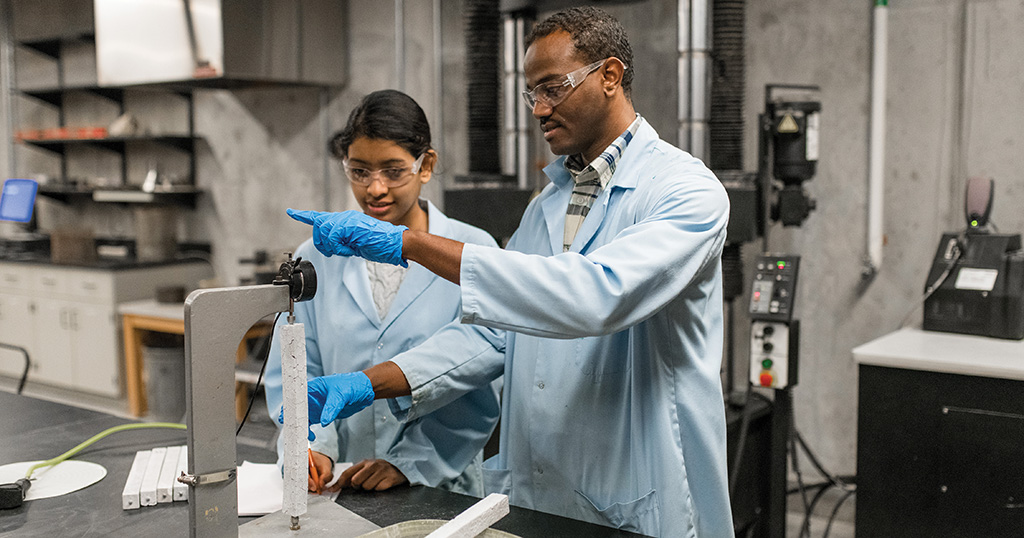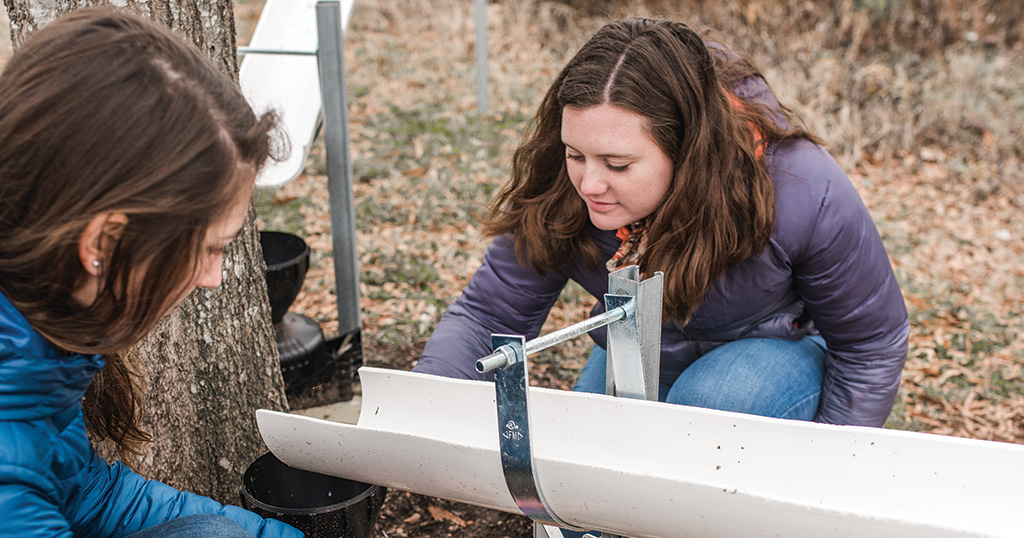Civil and environmental engineering is a broad field that includes the study of construction, environmental, geotechnical, structural, transportation, and water resources engineering. Careers can be found within construction companies, utility companies, consulting engineering firms, government agencies, and in most every industry.
Civil engineers are responsible for the design, construction, supervision, operation, and maintenance of infrastructure projects and systems in the public and private sectors. Projects include roads, bridges, tunnels, dams, water supply systems, building systems, and more.
Environmental engineers use the principles of engineering to protect human health and the environment from the impacts of pollution, whether in soil, water, or air. They are involved in efforts to improve air and water quality, waste disposal, and improve the sustainability of our way of life.
In short, civil and environmental engineers apply their technical skills to help people live healthier, more comfortable, and productive lives.
Stellar Faculty
Our faculty includes two UT-ORNL Governor’s Chairs and five endowed professors. They have diverse and award-winning research expertise that undergrad students are actively involved in. Together, they publish more than 100 peer-reviewed journal articles annually.
—Jack Rymer, Class of 2019

Why Civil and Environmental Engineering
—Lauren Meffe, Class of 2020
Facilities
CEE students have access to 11 state-of-the-art research centers and institutes. The department resides in the design-award-winning John D. Tickle building, which houses multiple high-tech labs for both hands-on teaching and research.
Student Organizations
CEE student organizations are a great way to develop your leadership and teamwork skills and network with fellow students. Organizations include the American Society of Civil Engineers, Hydrolunteers, the Associated General Contractors of America, the Institute for Transportation Engineers, and the CEE honors society Chi Epsilon.
Financial Support
We offer a generous need and merit-based undergraduate scholarships for enrolled students. Additionally, the college and university offer a number of scholarship opportunities. Visit One Stop for details.
Interactive Classes
We emphasize hands-on learning through labs and field projects to complement classroom learning. You’ll find yourself in the lab and out in the field by sophomore year.
Concentrations and Minors
Available minors include environmental engineering, watersheds, nuclear decommissioning and environmental management, sustainability, business, and engineering entrepreneurship. You can also double up and complete a BS/MS degree in five years.
Internship and Co-Op Opportunities
Students typically perform co-op assignments in areas of civil engineering consulting, construction and structural design, highway design and construction, and water and wastewater design. There are CEE roles in many other industries as well, such as the chemical, metal, and even shipbuilding industries. Typical companies CEE students work with while at UT include Arconic, Barge Design Solutions, Brasfield & Gorrie, Civil Site Design Group, Denham Blythe Co., EMJ Construction, ExxonMobil, the Federal Highway Administration, Garney Construction, KUB, Messer Construction, Philips and Jordan, TDOT, TVA, West Knox Utility District, and Wright Brothers Construction Co.
Senior Design Capstone Course
Each year, student teams are paired with a local or regional organization to contribute their skills and knowledge to solving a real-world civil engineering problem in the community. The course offers fantastic experiential learning prior to graduation.
Career Readiness
In addition to career prep through coursework, professional advisors help you navigate co-curricular opportunities as well as co-op and internship placements. We maintain close ties to local and regional
firms and government agencies including TVA, TDOT, and numerous construction and engineering firms to help connect graduating students with job placements.
Many recent graduates now work for private engineering and construction firms that are responsible for contracted projects from start to finish, while others are employed by federal, state, and local governments.
Still Have Questions?
Come visit! It’s the best way to find out if we’re a good fit for you. Schedule a department tour at cee.utk.edu/student-tours and a college tour at tours.tickle.utk.edu. You’ll meet some of our current students who can answer all your questions about how great it is to be an Engineering Vol.
Salary Outlook
According to the 2018 salary survey from the American Society of Professional Engineers, the median income civil and environmental engineers with bachelor’s degrees was $97,000. For those with a professional engineer’s license the median salary increases to $113,000.
